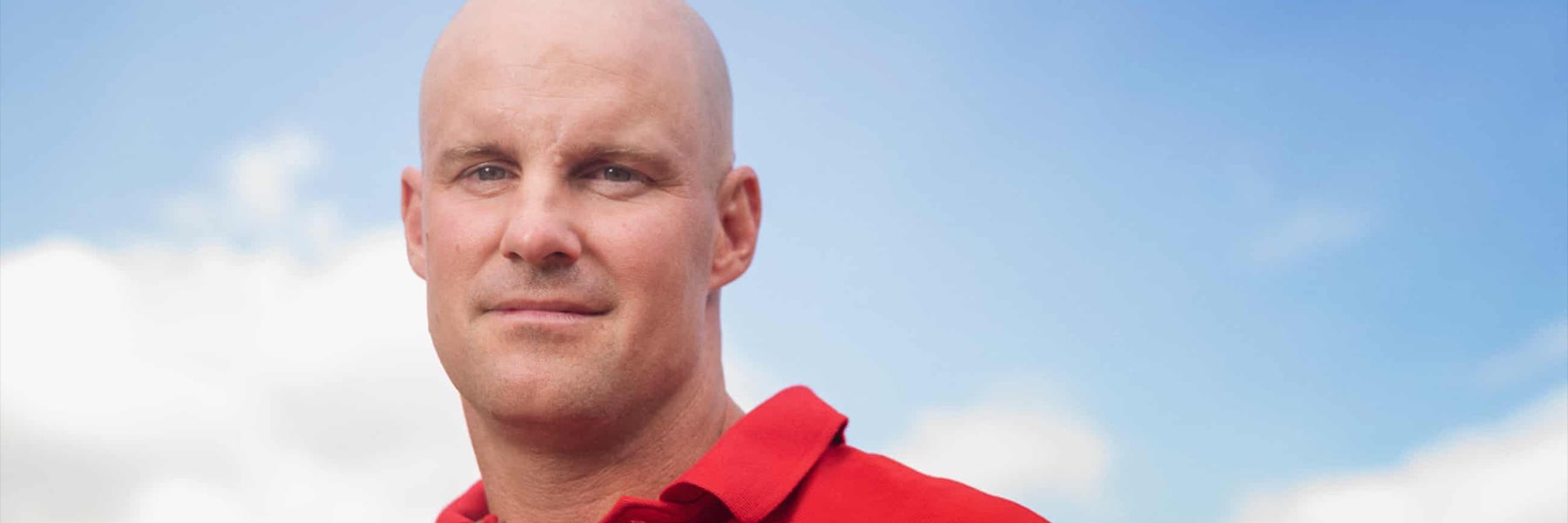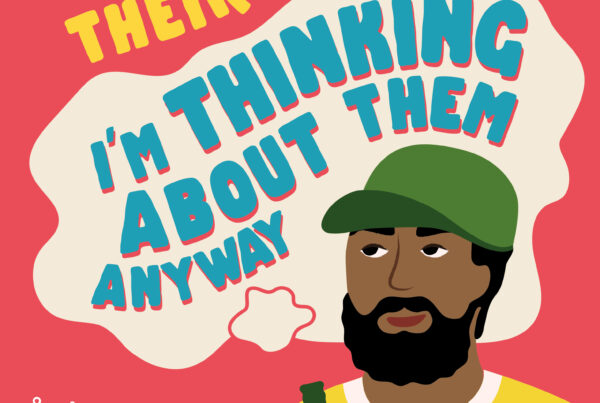Non-smoking lung cancers are mysteriously on the rise – and Ruth Strauss died of the disease in 2018. Her husband discusses his campaign for more research and how he and his two sons have coped
Andrew Strauss is on his way to Cornwall for a long weekend with his sons, Sam, 14 and Luca, 12, along with some friends from school, when I speak to him on the phone about RedforRuth. This weekend, for the second year, fans following the third Test will wear red, in memory of the cricketer’s wife, Ruth, who died at the end of 2018, and to raise money for the Ruth Strauss Foundation.
Its aim is an unusual combination, unique to her memory: to support children bereaved when a parent dies of cancer, and to spur research into non-smoking related cancers. And his speech is unusual, too, a mix of emotional openness and complete pragmatism that is powerfully affecting.
“Your life is completely different having been through this. I’m obviously incredibly proud of how the boys have reacted to it, they still go out and love life, enjoy life, see their mates. But there are three of us in our family, not four. It was my younger son Luca’s birthday a few days ago, and that was a hard time. Christmas is a hard time. Mother’s Day is a hard time.”
What he has found is that he gravitates towards people who have been through something similar – not because friends and family aren’t sympathetic, but because “the conversation can only go so far. They haven’t been there. They can’t give you good practical advice, they can’t give you the benefit of the experience they’ve had.”
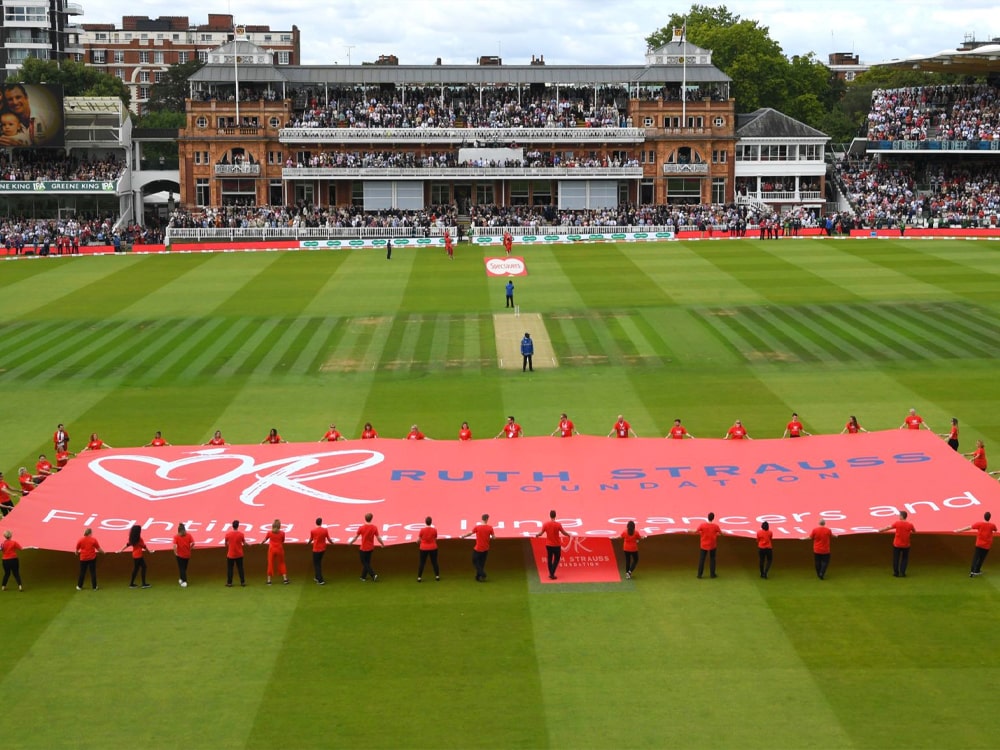
This is at the heart of what he’s trying to build: a network of people within cancer care settings and schools, who have been trained to say things that are practical and useful. Things beyond “sorry”. “It’s a passion thing for me to make sure that the foundation is helping as many people as possible. My gut feeling,” he says, “is that if you can prepare people ahead of time, do that pre-bereavement work, it puts you in a better place to not have to do that heavy stuff at the most difficult time possible.”
That most difficult time for the Strauss’s was three days after Christmas 2018, when Ruth died in Australia, having been diagnosed with ALK-positive non-small-cell lung cancer just over a year before. “For Ruth, it was pretty clear right from the start that this cancer, diagnosed at stage four – which the vast majority of these non-smoking cancers are – was incurable.
“But that didn’t mean there weren’t treatment options. We thought she might have five years. There was a lot to be positive about. But Ruth was always very realistic, as the treatment options moved from one to the other, she felt very strongly that she needed to prepare for her death. And she needed to prepare me and the boys for that eventuality as well.”
For the vast majority of her illness, she wasn’t bed-bound and was focused not just on preparing her family – keeping her sons informed but not overwhelming them with detail – but also on experiencing the most from every moment, creating times together that they would be able to remember as happy ones. “Ruth never had that poor me thing. She was always like: ‘Why not me? Why should I be any different?’ Her attitude was a catalyst for me seeing it in a similar light. You deal with the situation you encounter and play the cards you’re dealt.”
As well as the heartbreaking tasks – having to pick out 18th birthday presents for her sons, who were 13 and 10 when she died – she created a blueprint for the foundation and was driven to leave a tangible legacy. “She cared so deeply about the plight of people going through tough stuff. We had that conversation a couple of weeks before she died. She had a notebook and she wrote down on one side of A4 what she thought the foundation should be about. That’s been our founding document. Because it’s got to be authentic to her wishes.”
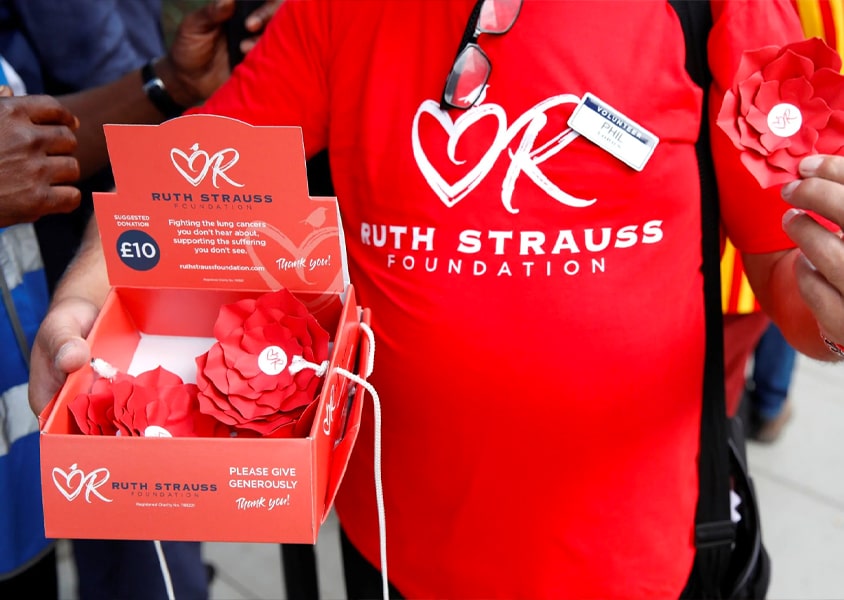
The bereavement counsellor Jenni Thomas was working with the family for some time before Ruth’s death. Her central message was that children have to be given permission to grieve, which means their surviving parent can’t bottle it up. It might not have come naturally to Strauss to express all his feelings without Thomas. “I think my upbringing was very much stiff upper lip. My parents’ generation, that was their way of looking at the world.
“Then going to a boarding school, you’re almost by default saying, ‘you need to suppress emotions, find a way of being resilient and carry on’, because you’re on your own. And even in my cricket career, you have to be invulnerable as a professional sportsperson. Any hint of vulnerability and the opposition will seize upon that. So being encouraged and supported to be open about it has meant a huge amount to me.”
The 20 years he spent with his wife also changed him, of course. They met in Australia when he was 21 and had just graduated from Durham, playing cricket for the university. Ruth was 26 and an actor. He was there to play for Sydney, later Adelaide, then came back to England to join the Middlesex team, of which he was later captain. He made his Test debut in 2004 and played his final Test in 2012 against South Africa, where he had lived until he was six, before his family moved to England.
Ruth’s positivity and enthusiasm were distinctive, even before her illness made that energy an almost superhuman feat. “One of the ways I’ve changed is that I’ve tried not to hold on to negative emotions. My experience has been one that just makes you realise the fragility of life, it’s really important you live your life without frustration and bitterness.”
While Strauss is driven to spread practical ways to cope with monstrous loss, he’s the first to acknowledge that there’s no one way to grieve. His sons “process it differently. My older one doesn’t talk about it much, my younger one will. That’s natural, and fine. What we know is that unprocessed grief is an unhealthy thing, and that leads potentially to depression, or addiction. As long as they feel comfortable talking about it to either me or a friend, or someone. The trouble comes when you feel like it’s a conversation you can’t have with anyone.”
No one family can do it alone, though, and it would help if we were all better at talking about death – because we avoid thinking about it, we don’t build up any of the vocabulary we need to be around people who are grieving. Strauss describes the hideously recognisable knots that friends tie themselves into when they’re trying to help but don’t know how. “They’re very worried about saying the wrong thing, or getting you emotional. They don’t want to make you sad. So they’re waiting for you to lead a dialogue. My experience is a couple of things: I always felt very grateful for the people that were willing to go there. And being comfortable enough to let the emotion come out. Also to the people who understood, that sometimes, and with some people, I did want to talk about it, and sometimes, with other people, I didn’t necessarily want to. Just that acceptance, with a person who’s grieving, that it’s not a linear thing, that it depends on the day.”
The other work of the charity is to push for more research on non-smoking related cancers which Strauss says are much more prevalent than you’d think from the amount they’re discussed: “It’s not a few hundred people getting it, it’s 5,000 people getting it.” The figures are stark – at the most recent count, 6,000 Britons had died in a year of non-smoking related cancers, making them more lethal than cervical or ovarian cancers, leukaemia or lymphoma. They affect women more than men, and younger women, too, in their 30s and 40s.
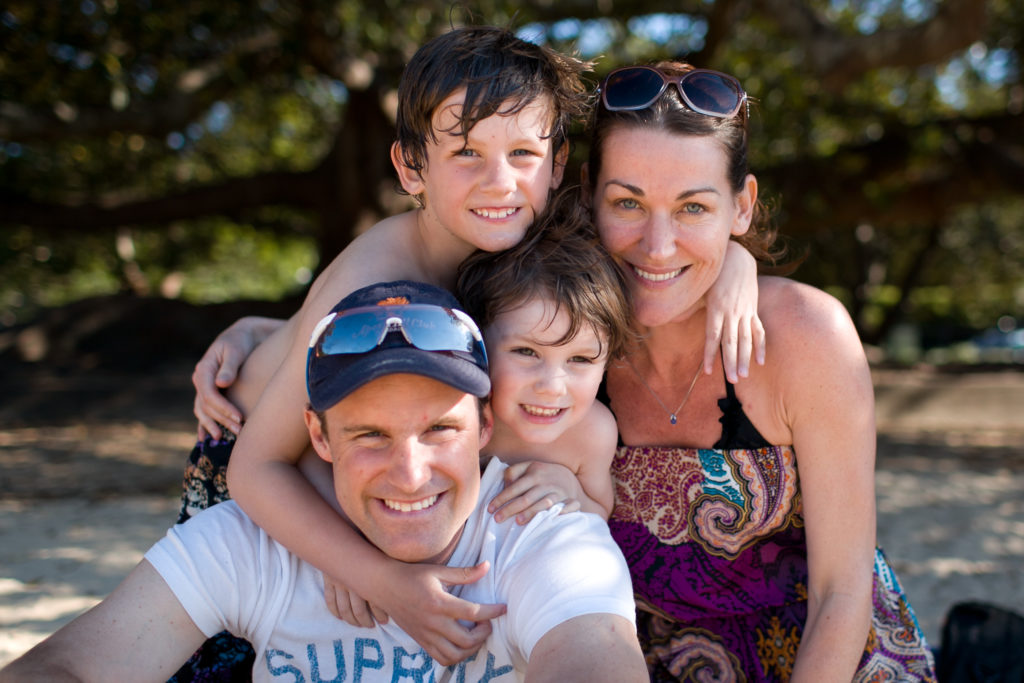
Part of the problem is that it’s the last thing many GPs would expect or look for – the symptoms are amorphous and variable, it could be back pain, it could be a hoarse voice. Ruth had little niggling complaints, none of which looked like classic symptoms. And since smoking is connected so indelibly with lung cancer in people’s minds, when a young, fit woman who has never smoked presents at the doctor’s with a cough, “most GPs would put lung cancer at 155th on their list of likely causes,” Prof Mick Peake, from the centre for cancer outcomes at UCLH, once commented.
“Earlier detection would make a huge difference to survival rates,” Strauss says. His sister is an oncologist, so the family never felt baffled by the process. But it remains mysterious, as much to the medical profession as to the families struck by it, what is causing lung cancer rates to worsen. Smoking-related cancers have naturally reduced in line with rates of smoking; but with LCINs (lung-cancer in never-smokers), rates are actually going up. And while there are four known causes – passive smoking; occupational factors, such as asbestos; radon gas; and a history of serious breathing conditions – none of those are rising, and some (passive smoking, asbestos) are themselves decreasing.
“Anything that’s on the rise, you should be asking about,” Strauss says. “There has been some research which shows some sort of link with pollution, which I suppose logically makes sense.” Globally, a link has been found between LCINs and some cooking fuels, but researchers believe that’s probably due to high-temperature wok cooking in poorly ventilated areas. It would explain why half of lung cancers among women in China are not smoking-related, but nobody is satisfied by it as a broader explanation. “You do think, was there anything we did that maybe contributed to her getting cancer? But it was really important for her to have peace in her heart when she died. She didn’t want to be holding on to that.”
He continues to pick that careful path that he describes so often in his wife: acknowledging what’s painful, trying to orientate towards what isn’t. Lockdown, which he spent in Marlow, Buckinghamshire, with Sam and Luca, he says was “privileges and penalties, wasn’t it? I enjoyed getting back to basics. But, of course, the novelty wears off after a while and you just want something to look forward to, whatever that might be. A holiday, catching up with mates, something that’s going to say: ‘That day is going to be slightly different to all the other days.’”
He makes a subtle point about the pandemic, that we’re talking a lot about coronavirus and about death tolls, without talking about death and loss themselves. “My instinct is that people aren’t getting the support that they need.”
He is mellow about his sons’ virtual schooling: “Obviously they’ve done it all. My experience so far has been that boys tend to be slightly less driven on the academic front. I was having lunch with a friend who’s got slightly older boys, and he was similarly exasperated with his kids, and he happened to come across some of his old reports, and he realised he was exactly the same. Until you have to do it, you cruise along doing as little as you can.”
In other apple-falling-from-tree news, Sam is very into cricket and also plays a bit of golf. When sport heaves into the conversation about grief and loss, you realise afresh how hard it is to do the work the Ruth Strauss Foundation was set up to do: so many expressions from cricket are roundabout ways of telling you not to express your feelings (keep a straight bat; they had a good innings).
Strauss is absolutely determined that his family won’t be silent on their feelings, that there won’t be a taboo around grief. “My sense is that people are left to grieve on their own. But there is movement around being open about death. I feel like we’ve got an opportunity to start a healthier dialogue. It’s going to affect us. It’s going to affect our partners, our friends. It defies belief that we’re not more inquisitive.”
Source: The Guardian
